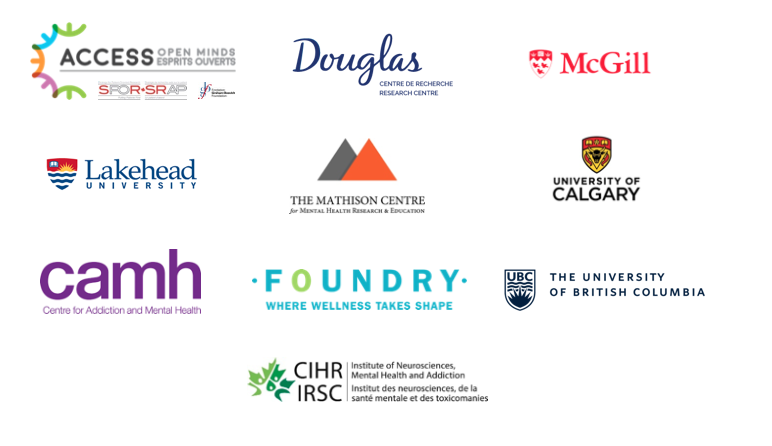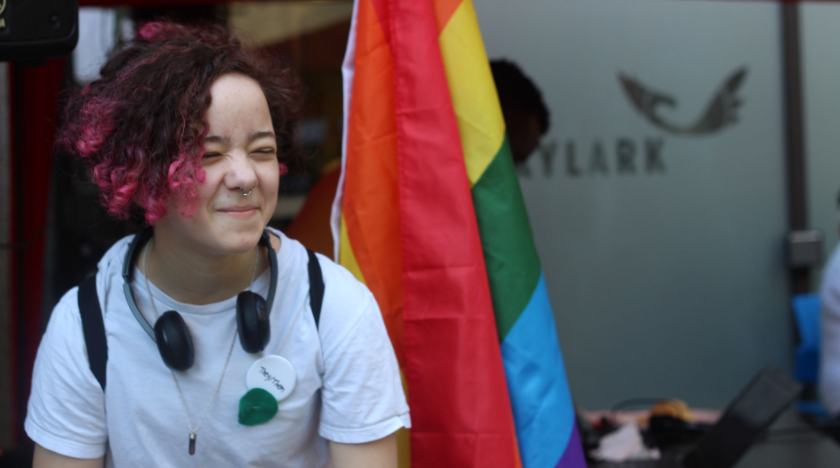Special Projects
-
Understanding Peer Support in Youth Mental Health Across Canada
Peer support can fall under various terms including but not limited to peer support, peer navigation, and peer worker. Regardless of the term used, peer support is ‘the help and support that people with lived experience are able to give to one another. Key elements of peer support are built on shared personal experience and empathy, a focus on an individual’s strengths not weaknesses, and working towards the individual’s wellbeing and recovery’, as defined by the Mental Health Commission of Canada. Individuals who have lived experience with mental health and problematic substance use concerns have been increasingly incorporated into initiatives such as ACCESS Open Minds (AOM), to help youth navigate the challenges to receiving care in the Canadian mental health system.
ACCESS Open Minds’ objective is to improve the mental health of young people by making better care more easily available at the right time. Services provided at AOM sites are designed to address the main challenges to accessing mental health services in Canada: barriers, wait lists, engagement, and quality of care. ACCESS Open Minds locations across Canada have implemented various forms of peer support services to assist their youth overcome these barriers and engage in their mental health and wellness journey.
This study aims to explore how peer support services at AOM assist youth navigate these barriers along with their mental health and wellness journey (including problematic substance use), as well as how these services have developed within each AOM site across Canada. This study also will explore how access to this service evolved during the COVID 19 pandemic.
The findings from this study will help to inform ACCESS Open Minds National on how to best support youth the youth that they serve and more specifically, how to strengthen their existing peer support services. Evaluating peer support services is an aspect of best practice in care provision, and it ensures that the quality of services is continuously monitored, maintained, and improved.
We are currently recruiting youth 16-25 who have accessed any form of peer support/navigation, peer support providers and clinicians from AOM locations for interviews.
This study will use qualitative methods to learn about current peer support work (PSW) at AOM locations and collaboratively conceptualize and document how to adapt existing work to strengthen its emphasis on youth engagement.
For more information please contact Research Coordinator: Pauline.macpherson@ucalgary.ca
-
Indigenous Gender and Wellness
Developed during CIHR’s Indigenous Gender & Wellness Idea Fair and Learning Circle that brought together Indigenous people and allies to develop project proposals focused on Indigenous gender and wellness the ACCESS Open Minds Indigenous Council was awarded awarded a Canadian Institutes of Health Research Indigenous Gender & Wellness Development Grant, which will allow participating communities to explore, map & develop a program to build and strengthen healthy relationships in Indigenous communities.
Nominated Principal Investigator: Gregory Brass
-
Youth Mental Health - Network Catalyst Grant
In Canada, youth mental health and substance use services are delivered by a vast tapestry of providers spanning different sectors, including hospitals, primary care and community organizations. Currently, there is minimal standard data collection or evaluation metrics across these sectors, communities or provinces. Because of this lack of common evaluation, researchers, clinicians, services and funders have no clear picture of the state of youth mental healthcare across Canada, nor which treatment approaches and services are effective for whom.
The Canadian Institutes for Health Research (CIHR) awarded a Network Catalyst Grant to address this challenge in the youth mental health sector, which is now compounded by the COVID-19 pandemic.
This initiative is led by ACCESS Open Minds, with direction from Dr. Jai Shah to design and implement a common evaluation framework for youth mental health and substance use services, this grant will bring together:
- AOM, operating in multiple urban, rural and Indigenous communities across Canada
- Provincial IYS initiatives such as Foundry (British Columbia), Youth Wellness Hubs (Ontario), Aire ouverte (Quebec), and a new Alberta Integrated Services Initiative
- Other local youth mental health community-based programs
Read the full press release here.

-
Pathway for Rapid, Internet-based, Self-referral to Mental health services for youth (PRISM)
Pathway for Rapid, Internet-based, Self-referral to Mental health services for youth

Project Summary
PRISM-ACCESS Open Minds is a services research project conducted in collaboration with the ACCESS Open Minds pan-Canadian network for youth mental health service transformation, community organizations (e.g., Kids Help Phone, mindyourmind), and Canadian-based health technology companies.PRISM-AOM aims to develop, implement, and evaluate the use of an online self-referral pathway to facilitate rapid and direct access to mental health services for youth.
Through this pathway, youth with mental health concerns will be able to connect with, and refer themselves directly to a local team specializing in youth mental health care using their phone, computer, or tablet. Parents and service providers will also be able to refer a young person to mental health services via PRISM-AOM. Clinicians will be able to triage, track, and manage referrals through a secured platform.
PRISM-AOM will be customized, launched, and tested in several Canadian healthcare settings participating in the ACCESS Open Minds network.
Contact:
Shalini Lal, Ph.D., M.Sc., B.Sc.O.T. (Reg.QC)
Email: ymhtechlab@gmail.com -
Future Skills Centre Collaboration
In collaboration with ACCESS Open Minds, Foundry and Youth Wellness Hubs Ontario, the Centre for Addiction and Mental Health’s (CAMH) Margaret and Wallace McCain Centre for Child, Youth and Family Mental Health will implement this two-year project focused on helping 360 youth facing barriers due to mental health challenges enter the job market. The Future Skills Centre’s $2.32 million investment for this team (Leads: Drs. Joanna Henderson and Srividya Iyer) will provide an evidence-based basket of supports, including working with employers to promote positive workplace experience and knowledge. Learn more here.









